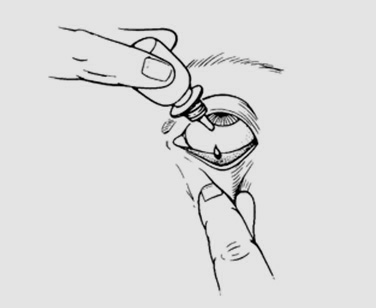
You can remove the pad over your eye when you wake up the morning after your surgery. Your eye may be a little red and it’s important not to be alarmed by this. First thing in the morning it is expected that the vision will be very “blurry”. This is because of the residual effects of the dilating eye drops and the local anaesthetic. The vision tends to improve gradually through the day, and the next day should be even better still.
You will able to return to your normal daily activities very rapidly after cataract surgery, and should be able to resume your normal day-to-day activities within a day or two after surgery. Normally, we would expect the vision to be somewhat better the first day after surgery and then this would improve over the next few days. You can return to driving if you feel comfortable and you have adequate vision in your fellow eye. Some patients elect to take a few days off work after surgery, but this is not essential. Patients who have sedentary jobs can be expected to return to work very rapidly.
Mark will prescribe some antibiotic drops and some anti-inflammatory drops for your eye, which usually need to be put in four times a day initially. You continue these drops for approximately one month. Please make sure that you will be able to do this following surgery, or ensure that someone will be able to put them in for you.

Drop won’t go in the eye! Use the “lying down” method: lie on your back with your head turned slightly towards the side that you want the drops to go in. Close your eyes and put a drop in the corner of the eye nearest the nose. Then, at the same time, gently open your eyes and turn your head so that your cheek is against the surface you’re lying on. The drop should run into your opened eye.
My hands are shaking. Rest your hand on part of your face – the cheeks if using the method above, or some people like to approach from the side and rest their hands on their temples. See what works for you. Another tip is to weigh your hands down with light weights – gym wrist weights are ideal but you may be able to improvise, e.g. make a hole in a small packet of potatoes or tape together two small bags of sugar and slide your hand through.
Or try the “lying down” method described above.
It is perfectly safe to fly immediately after surgery. However, Mark insists that patients curtail any travel plans and stay in the UK, able to travel to London, for at least one week after surgery. This allows him to review patients in a timely fashion if they encounter any post-operative problems.
Please remember that you have had an operation on the eye. You will be using drops and it is expected that the eye will be red and a little sore for a few days after surgery. It is sensible NOT to schedule major life events for 1 - 2 weeks after surgery (e.g. “trip of a lifetime”, distant business trips, weddings, major anniversaries, etc).
It is very common for the operated eye to feel slightly gritty for anything up to six months after surgery. This is due to surface dryness and can be alleviated with lubricating eye drops. It occurs because the surface of the eye has been disturbed during surgery, and some of the corneal nerves have been cut.
For the first two weeks after surgery, the principal worry is infection getting in the eye. This is extremely rare but potentially very serious. If you notice one or other of the following symptoms then you must be seen urgently:
1. Rapidly deteriorating vision.
2. Severe pain and redness which is getting worse.
If you have any of the above symptoms, you need to seek advice urgently.
For patients who have had private surgery by Mark Westcott only:
During office hours please contact the practice on Tel: 020 7402 0724, Mobile: 07963 452901.
Alternatively, you can ring Moorfields Eye Hospital on the following number: 020 7253 3411 (24 hours, including weekends) and ask for the Accident & Emergency Department. Explain to them that you are a recent cataract surgery patient of Mr Westcott’s and they will advise. Moorfields Eye Casualty is staffed 24 hours a day by experienced ophthalmologists who can see you in the first instance and who will be able to contact Mark.
Patients who have been operated on at The London Clinic also have the option of ringing there on 020 7935 4444 (24 hours, including weekends) and asking to speak to Matron, who will be able to provide advice and contact Mark if necessary.
You will need to return one to two weeks after surgery so that Mark can examine the eye. In the meantime, continue with your post-operative drops as directed.
Your cataract cannot grow back after cataract surgery and the implant will last the rest of your life. In approximately ten percent of patients, a membrane behind the implant thickens over gradually after the first two to three years after surgery. This results in a gradual deterioration in your vision. This can be very easily treated with an office-based laser treatment.
Many of the precautions are common sense. For 2 weeks after surgery you should avoid:
You will be asked to put a clear shield over your eye before you go to bed, to be worn during the night. This will be done for one week after surgery.

We have put all the cataract information on the next few pages of our website into a pdf document for you to download and print out if you prefer.